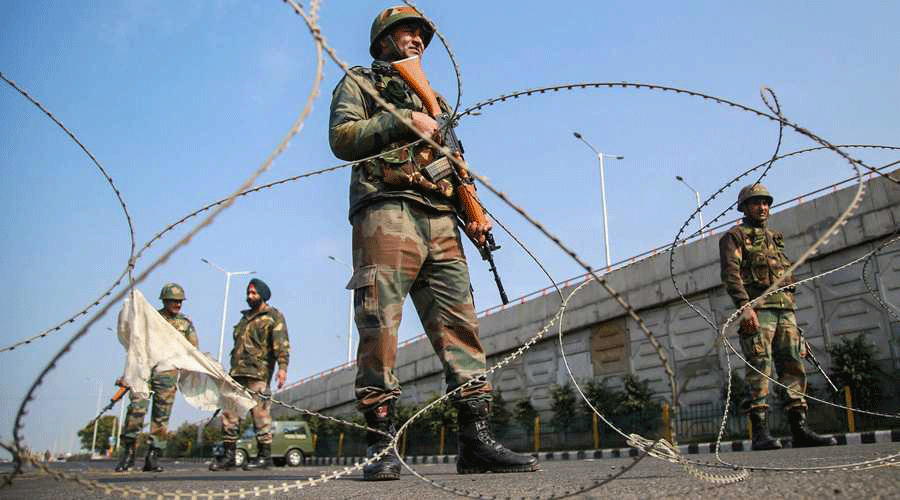Re-elections to two local body seats in north Kashmir on Monday seemed to carry a symbolism far beyond their immediate political significance, mirroring an apparent double standard in how the government lays claim to Pakistan-occupied Kashmir but treats its residents as aliens in India.
Elections to the district development council seats in Drugmulla (Kupwara) and Hajin (Bandipora) had been cancelled during counting in December 2020 because they featured two women contestants from PoK, both married to local men and settled in Jammu and Kashmir.
Ironically, the Jammu and Kashmir Assembly has always had a number of vacant seats reserved for PoK residents — a symbolic affirmation of India’s claim to the territory and its apparent grant of citizenship to its people.
On the ground, however, women from PoK are denied the rights of citizens here and many are prosecuted as illegal immigrants. This despite many of them being married to former Jammu and Kashmir militants who had renounced the gun and were allowed to return to India from PoK, with their wives and children, under an “unofficial” rehab package a decade ago.
In 2017, the state government had revealed that 377 “former militants”, along with 864 family members, had returned since 2010.
Complaints that Soomiya Sadaf and Shazia Aslam, candidates in Drugmulla and Hajin, were “illegal entrants” and “not bona fide Indian citizens” had prompted the election authorities to stop the counting of votes on December 22, 2020.
Seven months later, the state election commission declared the two elections null and void after a probe found that the two women were from PoK. Their names were deleted from the voters’ list.
Yet, Parliament had three decades earlier, on February 22, 1994, passed a unanimous resolution declaring PoK an integral part of India and asking Pakistan to vacate the territory.
Last month, defence minister Rajnath Singh had expressed concern at what he described as “stories of atrocities on innocent Indians (PoK residents)” by Pakistan in the region.
Bushra Farooq, a woman from PoK married to a Kupwara resident, accused the government of a double standard.
“We are neither welcome here nor are we allowed to return to Pakistan as we are facing cases under the Foreign Nationals Act. Other (foreign) women married to Indians are entitled to citizenship after seven years of marriage, but in our case we have no rights,” Bushra told The Telegraph.
In 2010, the Omar Abdullah government had with the Centre’s backing announced a return and rehabilitation policy for hundreds of Kashmiris who had crossed over to the other side to pick up arms or avoid alleged harassment by security forces here. Many of them had had a change of heart there, giving up militancy for a married life.
Pakistan had opposed the Indian rehab policy, forcing it to remain technically an unofficial initiative. The former militants had to escape to Nepal with their families before entering India.
The PoK women claim they are being targeted for their Muslim faith, citing how tens of thousands of Hindus who had migrated from Pakistan to Jammu and Kashmir after Partition had been granted domicile and other rights following the abrogation of Article 370 provisions.











